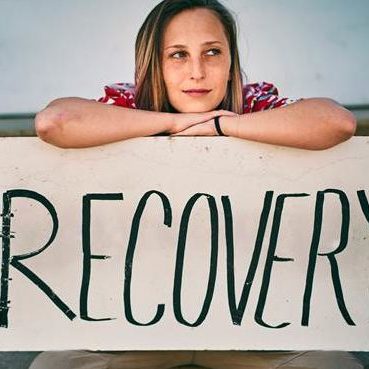[vc_single_image source=”featured_image” img_size=”full”]
If you could choose one superpower, which would it be: flight or invisibility? Molly-Anne D. would surely choose flight, since she has already spent most her life feeling invisible, fighting to be seen, from therapeutic boarding school, to the Israeli army, to UC Berkeley and eventually to BTS.
Like so many of Beit T’Shuvah’s residents, Molly-Anne grew up in a dysfunctional home. There was trauma, abuse and an overwhelming feeling of social discomfort. “I would escape into my mind because that was the only safe place that I knew,” she explains. As a result, she spent her early school days feeling threatened and angry, isolated and mean. Schoolwork came too easily to Molly-Anne and she was easily bored and frustrated. As a result of her out-of-control behavior, she changed schools often, and started drinking when she was 14.
Shortly thereafter, Molly-Anne was sent to a therapeutic boarding school in Arizona, where she spent a year and a half, crying almost every day. As Molly-Anne describes it, she felt safe, and made friends, but she was all too aware of the pain waiting out there in the world and lacked sufficient self-awareness to change, instead continuing to feel scared and hopeless. One of her counselors described Molly-Anne’s state as “51% trying to be invisible and 49% crying out for help,” the accuracy of which impresses Molly-Anne even now.
She returned home, and her feeling of never being heard or seen quickly returned. Molly-Anne tried to use her prescription medications to get high, started cutting, threatened suicide. She began smoking weed, which she hated but which she continued to use day after day. Finally, at 17, she began her studies at the John Jay College of Criminal Justice in Manhattan. She alternated between mania and dissociative depression until she was barely functional. She turned to AA (to which she had been introduced briefly a year earlier), met a man in the program, stayed sober, made friends and saw a future. When they broke up all too soon, Molly-Anne found herself yet again unable to function and dropped out of John Jay.
She was ready for something new. Molly-Anne did her research (as was her habit) and decided to join the Israeli army. She had learned to read and write Hebrew in day school but needed to learn to speak it, so she spent four or five months speaking Hebrew at a kibbutz. Molly-Anne loved Israel, which she describes as being full of people who are there because they are lost, or as a last resort. After the kibbutz, she moved to an organization to receive military training and further her language skills. She made friends and found space to grow. Unfortunately, Molly-Anne injured herself while in search-and-rescue training and, feeling unheard yet again, fell into another deep depression. The psychiatrist discovered her history of mental illness, and Molly-Anne was given the choice between a desk job and discharge. She left just as fighting was escalating in Gaza. For the first (and only) time, Molly-Anne was ready to die for a cause, and now she was out.
Back home, Molly-Anne spent two years at Moorpark College and found her way to the theater department, and a community, and to drugs, some old and some new. Around this time, she met Doug Rosen, with whom she immediately connected and who became a mentor of sorts. He quickly became the one person who knew her best and whom she trusted the most; he was always there, no matter what.
From Moorpark, Molly-Anne transferred to UC Berkeley, where she studied English to better her writing with the goal of going into the film industry. The academics were much tougher, and she loved it. Then she entered into another relationship that led to the darkest period of her drug use. Her girlfriend hated drugsbut also suffered from mental illness and ultimately they couldn’t connect. Molly-Anne’s GPA hit a low of 2.6. She and her girlfriend broke up and Molly-Anne returned to cocaine and Adderall. She managed to graduate in 2018 with a 3.8.
Unfortunately, her drug use followed her to her great opportunity as assistant to a producer, and Molly-Anne found herself out of a job. She spent months at home on the couch getting high. “I always said if I had the time, I’d go to treatment… and there I was sitting on a couch for days, getting high. I was at this part in my life where I had all this time, finally, but I was scared of jumping… to actually try and get better,” she explains.
As he neared his death, Molly-Anne’s grandfather told her something profound. “He told me I needed to walk through that fear in order to survive,” she says. She listened. She was able to get clean for her grandfather’s funeral but knew it wouldn’t last and called Beit T’Shuvah.
She walked through the doors of Beit T’Shuvah on December 18th. Molly-Anne acknowledges that this part of her journey is rife with challenges. “It hasn’t been easy, but I have an amazing treatment team. It’s not so much sobriety, but it’s struggling to sit with who I am and everything that I’ve become,” she explains. Molly-Anne struggles to grapple with her trauma, to be seen, to not live in her head and to feel safe in the world. “The community here holds me above water when I feel like I’m drowning and I’m really grateful for the kindness that is Beit T’Shuvah,” she says.
These days you can find Molly-Anne ruling the roost as a house monitor, falling back in love with her writing and going to Madcity Boxing (owned by former resident Dominick Lofaso) to punch out her stress. “There are days when I want to give up on myself, but the friends I’ve made here, the staff here, they all remind me why I need to push forward.”
